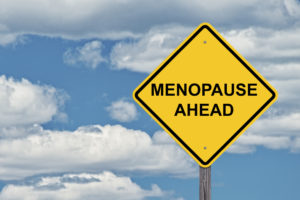
Peri-menopause, Menopause and Weight Gain
Menopause is a natural part of ageing and marks the end of a person’s reproductive years. But why do so many women seem to gain weight as we enter peri-menopause or menopause?
This new phase of life can start at different times for different people; some may experience changes in their 30’s, 40’s, or 50’s. The ovaries begin to produce less of the reproductive hormones oestrogen and progesterone, initiating changes in menstruation.
Although menopause is often used as a blanket term, the transition can be divided into phases of peri-menopause and menopause.
Peri-menopause is a sequence of hormonal events and changes in the body that are similar to what occurs during puberty. The person’s ovaries produce lower levels of progesterone, and there are high and fluctuating levels of oestrogen. These oestrogen levels then dramatically drop, causing possible insulin resistance. These events are responsible for symptoms such as weight gain, slowed metabolism, blood sugar dysregulation, low libido, vaginal dryness, hot flashes, night sweats, insomnia, migraines, and mood changes.
Menopause is confirmed after a person has not experienced a period for 12 months. The ovaries stop releasing eggs, the body stops producing progesterone, and only small amounts of oestrogen are made. Menopause is a natural hormonal process and is nothing to feel ashamed of.
So, why do we gain weight, particularly around the middle?
Insulin resistance happens when the cells in your muscles, fat, and liver don’t respond to insulin. Insulin is a hormone your pancreas makes that regulates blood sugar levels and affects fat and protein metabolism. Cells of the body can become resistant to insulin, which results in a rise in blood sugar levels. This causes the excess sugar in the body to be stored in adipose tissue. Adipose tissue is a connective tissue with the main function of storing energy that is primarily located around the middle.
To learn about strategies to manage weight gain during peri-menopause and menopause by preventing insulin resistance, make an appointment with a qualified health practitioner. Book an appointment with our resident Nutritionist, Margo, to learn about diet and lifestyle changes that can be implemented to help make changes, or contact the clinic and book an appointment with one of our Chinese Medicine practitioners.
In the beginning stages of peri-menopause, oestrogen drops and androgens remain constant or increase. Increased testosterone (androgens) increases abdominal weight and insulin resistance. This decrease in oestrogen and progesterone causes metabolic changes in insulin resistance, contributing to weight gain around the middle.




